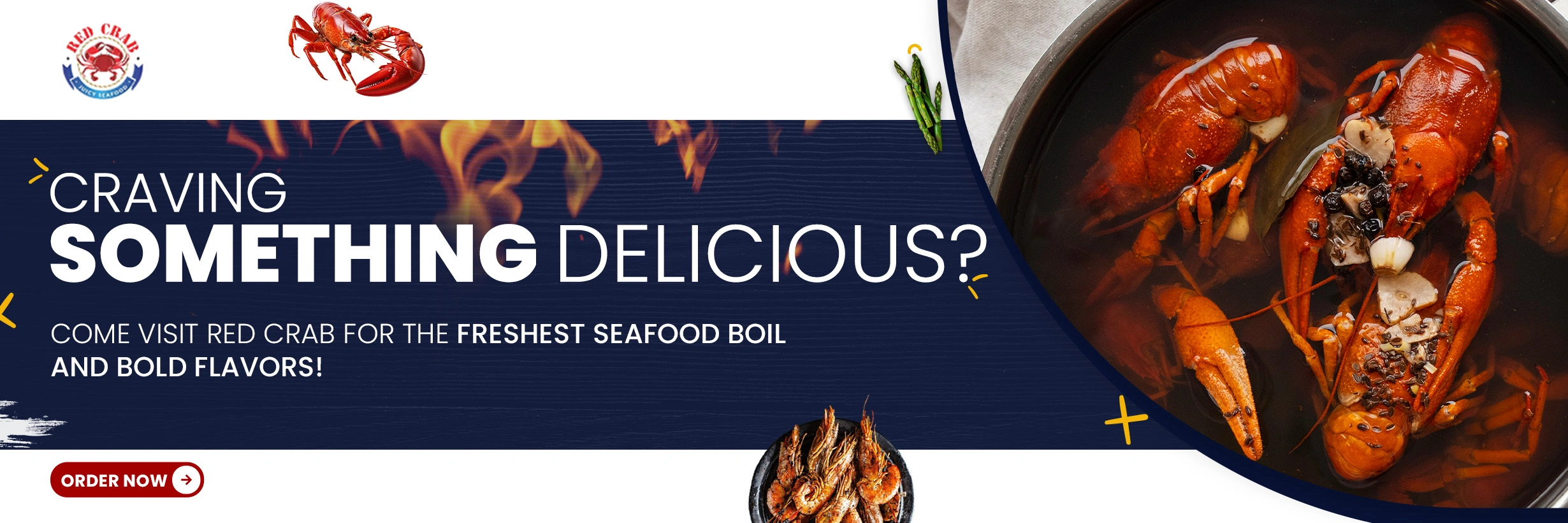Mistakes to Avoid When Cooking Shrimp
Shrimp is one of the most popular types of seafood to cook at home. It’s quick, delicious, and can be prepared in countless ways. However, many people make common mistakes that can ruin the dish. If you’re wondering how to cook shrimp perfectly, this guide will help you avoid these pitfalls and make shrimp taste amazing every time. Whether you’re new to cooking shrimp or have some experience, mastering the basics is key. You’ll also find answers to common questions. So, let’s dive in!
Table of Contents
1. Skipping the Deveining Step
One of the first mistakes people make when cooking shrimp is skipping the deveining process. The dark line running along the back of shrimp is its digestive tract. While it’s not harmful to eat, it can taste gritty and unappetizing.
Deveining shrimp may seem like an optional step, especially if you’re in a rush, but it makes a noticeable difference in the quality of your dish. It can affect how your shrimp pairs with seasonings and sauces, leaving an otherwise perfect dish lacking in flavor. Deveining is also essential if you’re cooking shrimp for a crowd or special occasion. Presentation matters, and clean, deveined shrimp always look more appealing on the plate.
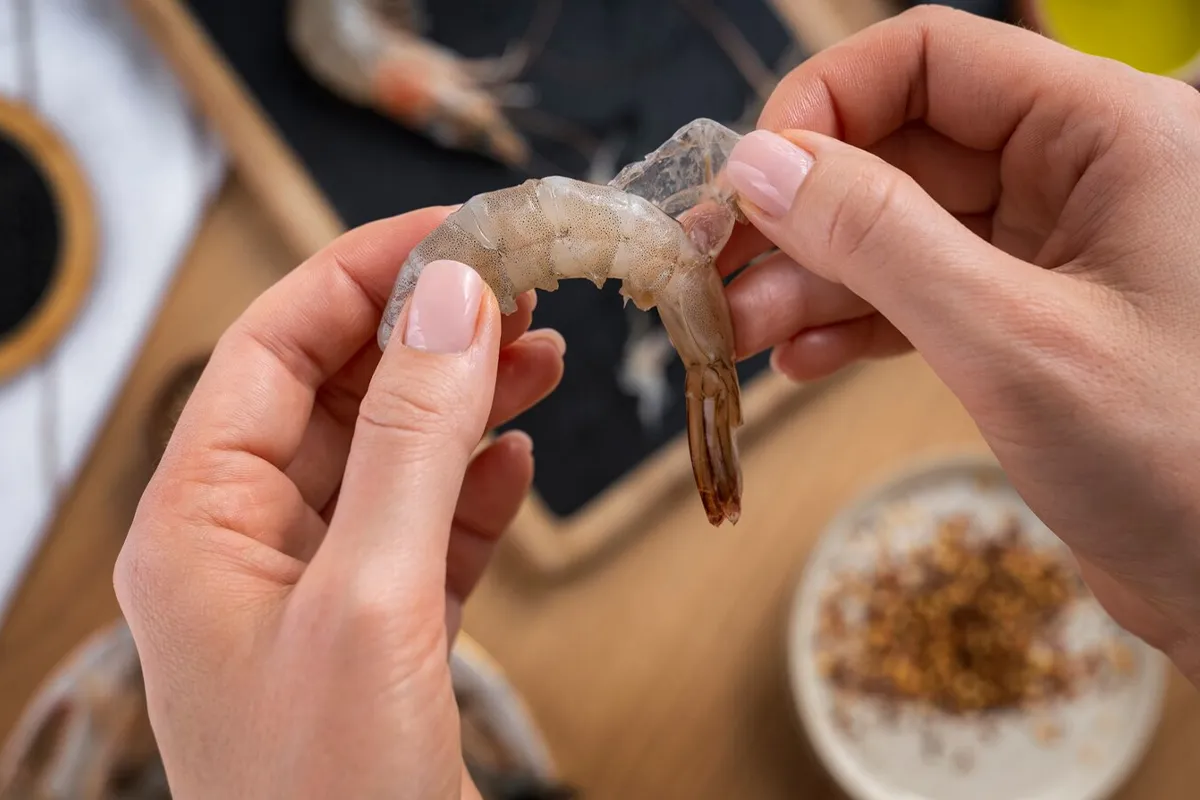
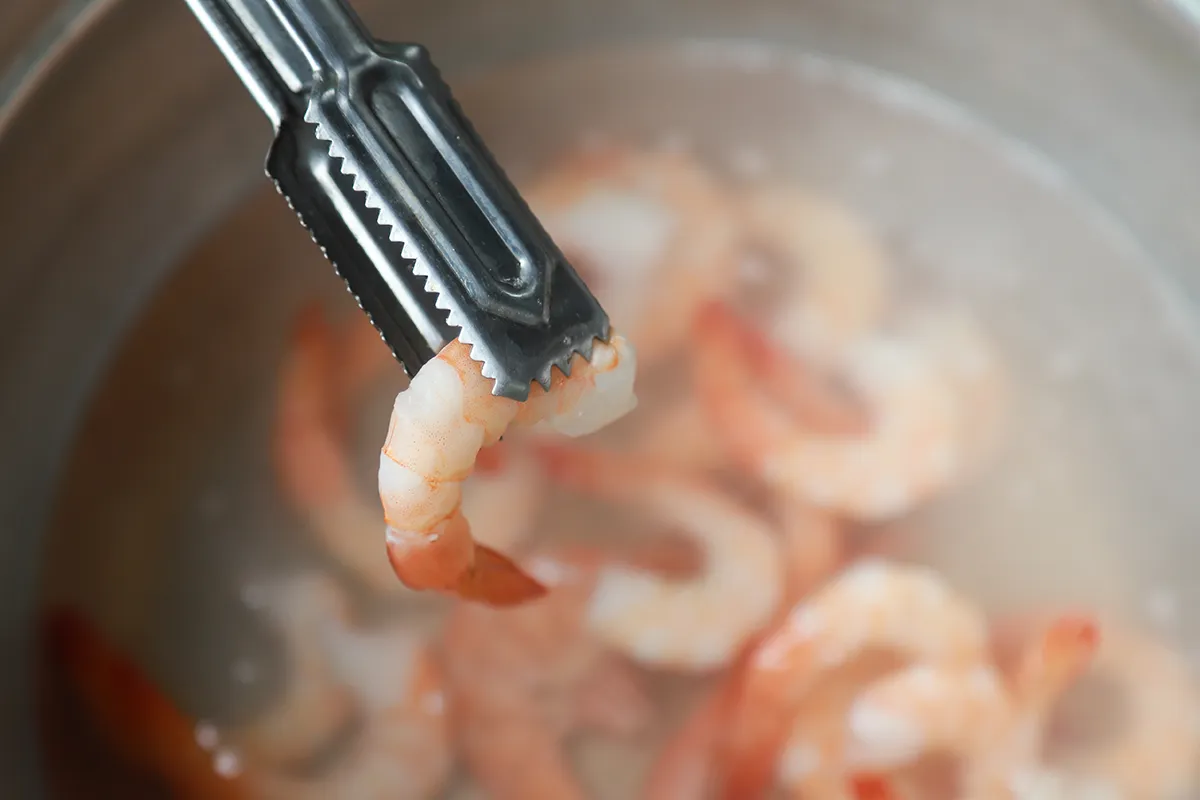
2. Not Thawing Shrimp Properly
If you’re using frozen shrimp, how you thaw it is crucial. Thawing shrimp the wrong way can completely ruin the texture of this delicate seafood. Allowing shrimp to thaw at room temperature or under hot water might seem quick and easy, both methods can compromise the texture and safety of the shrimp. They lead to uneven thawing and even begin to partially cook shrimp prematurely. This affects how the shrimp cooks later, often leaving them rubbery or mushy.
For the best results, thaw shrimp under cold water. This method not only preserves the shrimp‘s natural texture but also maintains its flavor. If you plan ahead, you can thaw shrimp overnight by placing them in the refrigerator. This slow process allows the shrimp to stay firm and fresh. Remember, proper thawing is the first step in understanding how to cook raw shrimp the right way.
3. Overcooking Shrimp
Overcooking shrimp is a common mistake that can turn your dish from delightful to disappointing. Shrimp cook very quickly, so leaving them on the heat even 30 seconds too long can make them tough and chewy. This happens because shrimp‘s proteins tighten up as they cook, and overexposure to heat causes them to contract too much.
To avoid this, pay close attention while cooking. Whether you’re boiling, sautéing, or grilling, keep an eye on the shrimp‘s color and shape. For sautéing or grilling, cook shrimp for 1-2 minutes per side, depending on their size. If boiling, watch for when the shrimp turn pink and float to the top. Learning how to cook shrimp to perfection is a skill that will make every dish shine.
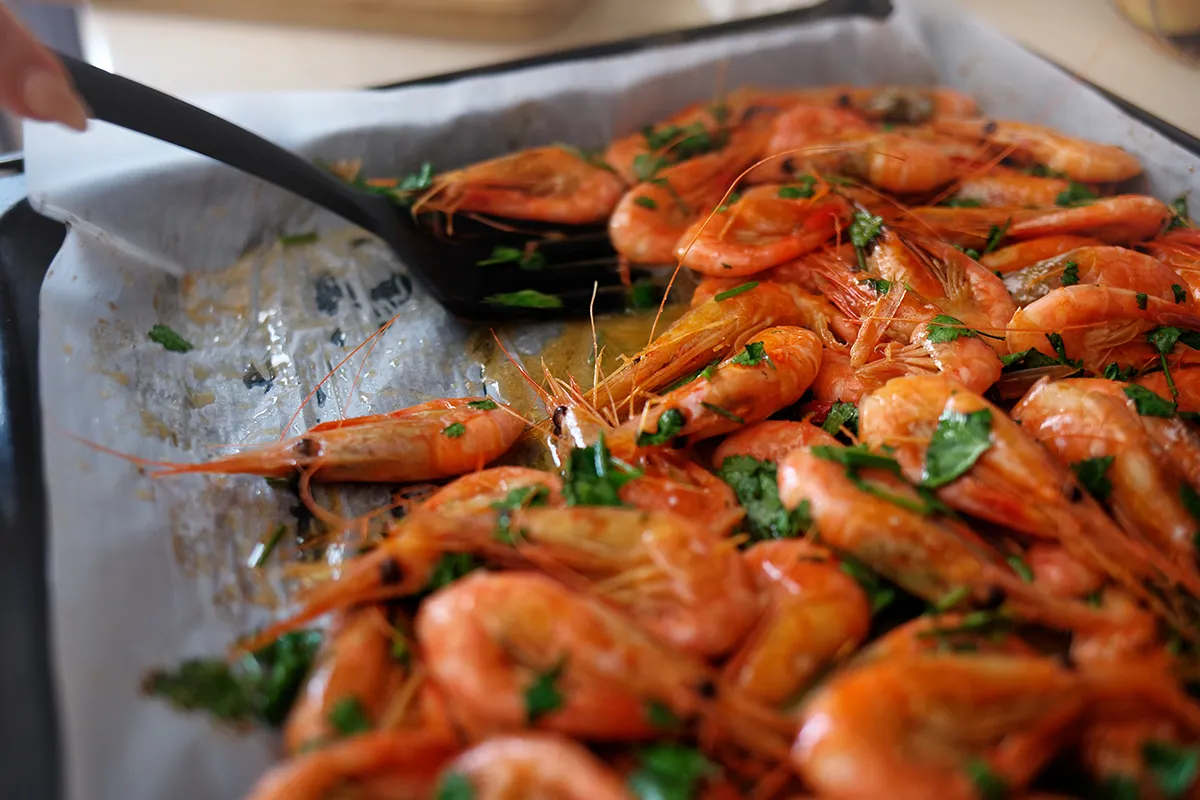
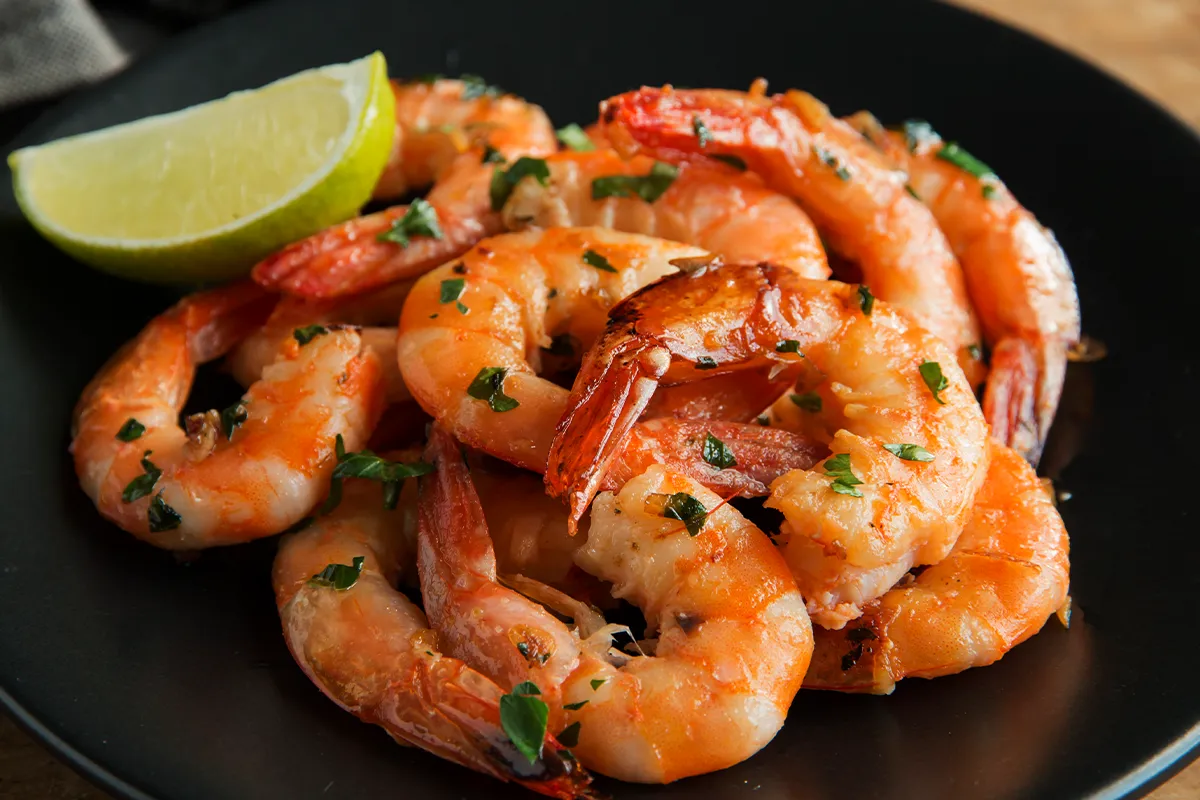
4. Skipping the Seasoning
Shrimp are naturally sweet and mild in flavor, but they need a little help to truly stand out in a dish. One of the biggest mistakes when cooking shrimp is forgetting to season them adequately. Without seasoning, shrimp can taste bland, even when paired with flavorful sauces or ingredients.
Seasoning shrimp doesn’t have to be complicated. A basic combination of salt, pepper, and olive oil can go a long way. For a more robust flavor, add garlic, paprika, chili powder, or lemon zest. If you’re grilling or pan-frying shrimp, a marinade can add layers of flavor. A blend of olive oil, fresh herbs, and citrus juice works wonders for bringing out the best in shrimp. Taking the time to season shrimp properly is the key to creating memorable meals.
5. Using the Wrong Cooking Method
There are many ways to cook shrimp—grilling, boiling, sautéing, steaming, or baking. Each method works best for specific recipes but choosing the wrong cooking method for your dish can result in a mismatch of textures and flavors. For example, boiling shrimp for a stir-fry might leave them too soft, while grilling shrimp for a soup may make them overly firm.
If you’re sautéing shrimp, make sure to use high heat to create a quick sear. This locks in the juices and gives the shrimp a golden exterior. Grilling shrimp requires a little extra care—brush them with oil to prevent sticking and cook them for just 2-3 minutes per side. Boiling is ideal for recipes like shrimp cocktails or salads. The trick is to tailor the cooking method according to the dish you’re preparing. Knowing how to cook shrimp using the right method ensures that your seafood complements the rest of your meal.
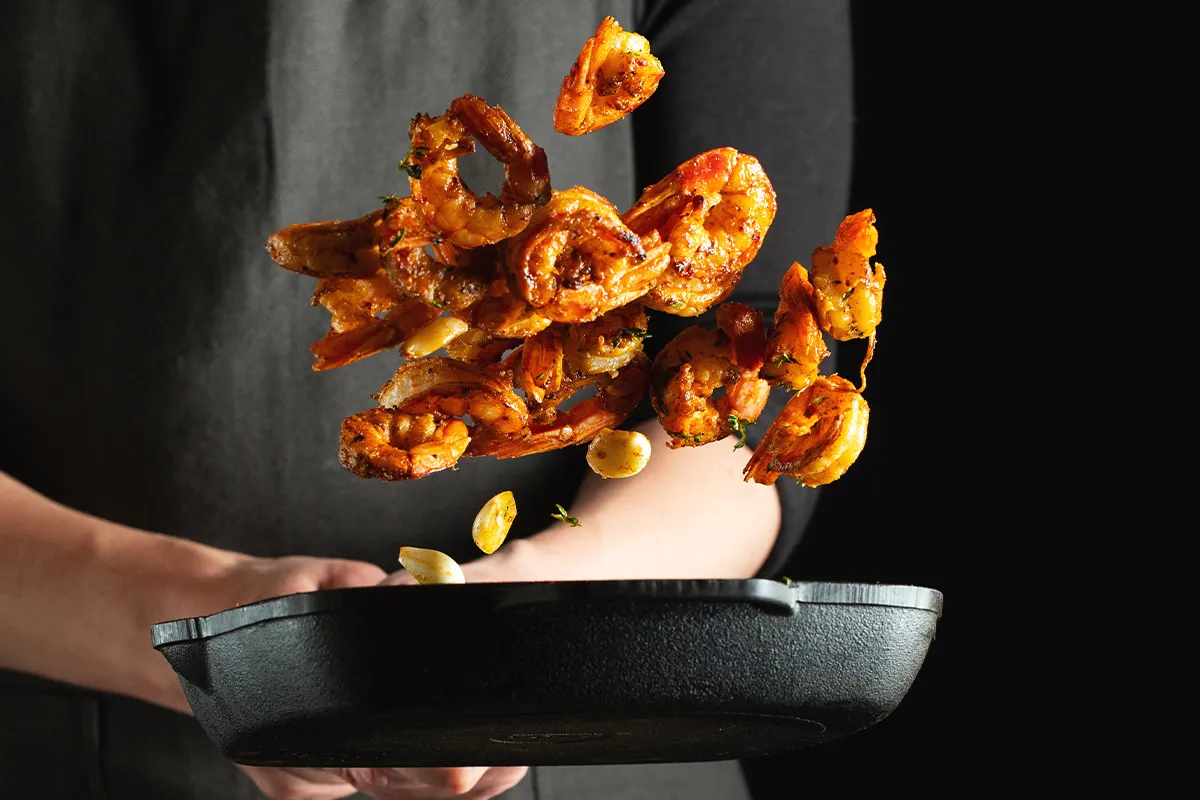
Bonus Tips for Cooking Shrimp
- Use a thermometer if you’re unsure when shrimp are done. Shrimp are perfectly cooked when they reach 120-140°F.
- Experiment with different seasonings and marinades to match the dish you’re preparing. A mix of olive oil, garlic, lemon, and parsley is a classic choice for many shrimp recipes.
- Keep it simple. Shrimp don’t need elaborate preparations to taste good. Sometimes, a quick sauté with butter and garlic is all you need to create a standout dish.
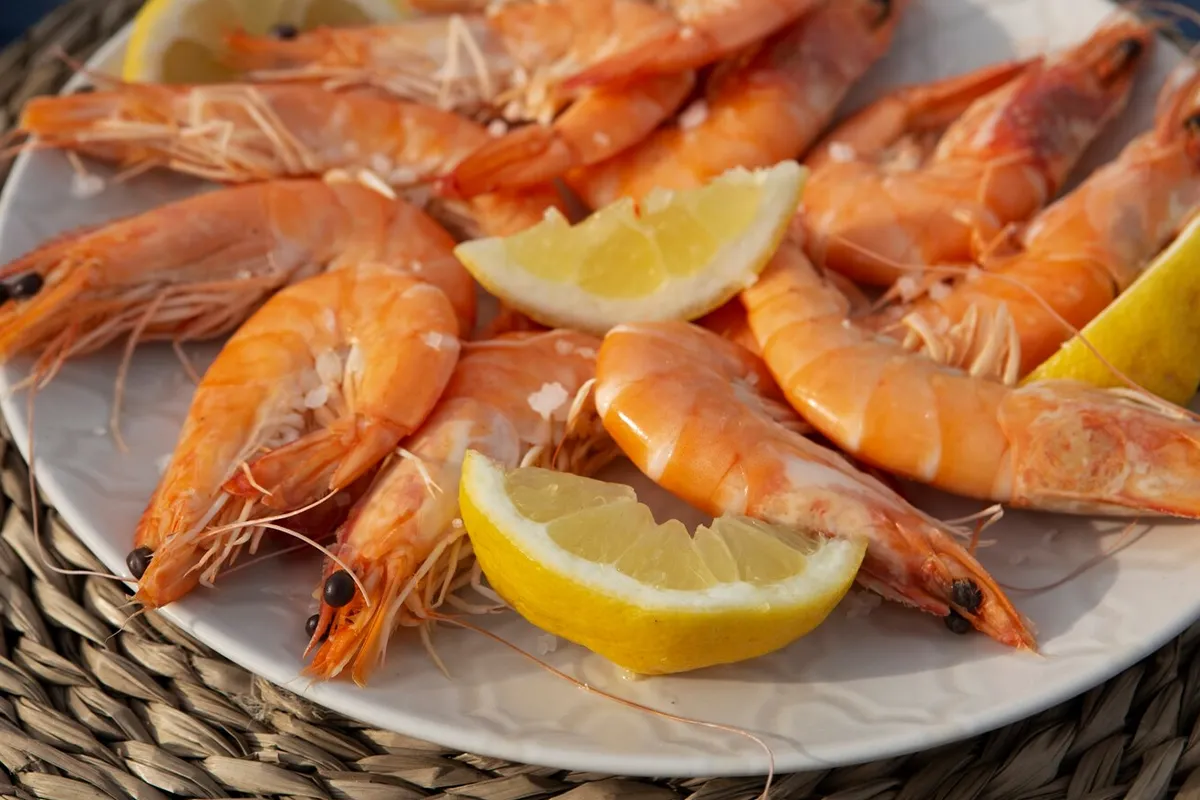
6. Throwing Away Shrimp Shells
If you’re peeling shrimp before cooking, don’t throw away the shells! This is one of the biggest mistakes people make when cooking shrimp. Shrimp shells are often discarded without a second thought, but they’re one of the most flavorful parts of the shrimp and can be used to make a delicious stock or broth.
When cooked, the shells release a rich, briny flavor that can be used to elevate many dishes. By throwing them away, you’re missing out on an easy way to enhance your cooking. Simply simmer the shells with water, onions, garlic, and herbs for about 30 minutes. The resulting stock can be used as a base for soups, risottos, or sauces. Even if you don’t need stock right away, you can freeze the shells to use later. Utilizing every part of the shrimp is not only economical but also a great way to add depth to your dishes.
7. Not Drying Shrimp before Cooking
Moisture is the enemy of crispy shrimp. Although, drying shrimp might seem like an unnecessary extra step, it can make a huge difference. Especially if you’re pan-frying or grilling, not drying them first can lead to a soggy texture. Moisture on the surface of the shrimp prevents it from getting that golden-brown sear we all love. Instead, it steams the shrimp, leaving it pale and soggy.
To prevent this, pat the shrimp dry with paper towels before seasoning and cooking. This helps them sear properly and develop a nice golden crust. It’s a small step, but it makes a big difference. This step is particularly important if you’ve just thawed the shrimp, as frozen shrimp tend to retain extra water. Dry shrimp not only cook better but also absorb seasonings better. If you want perfectly caramelized shrimp, don’t skip this simple step.
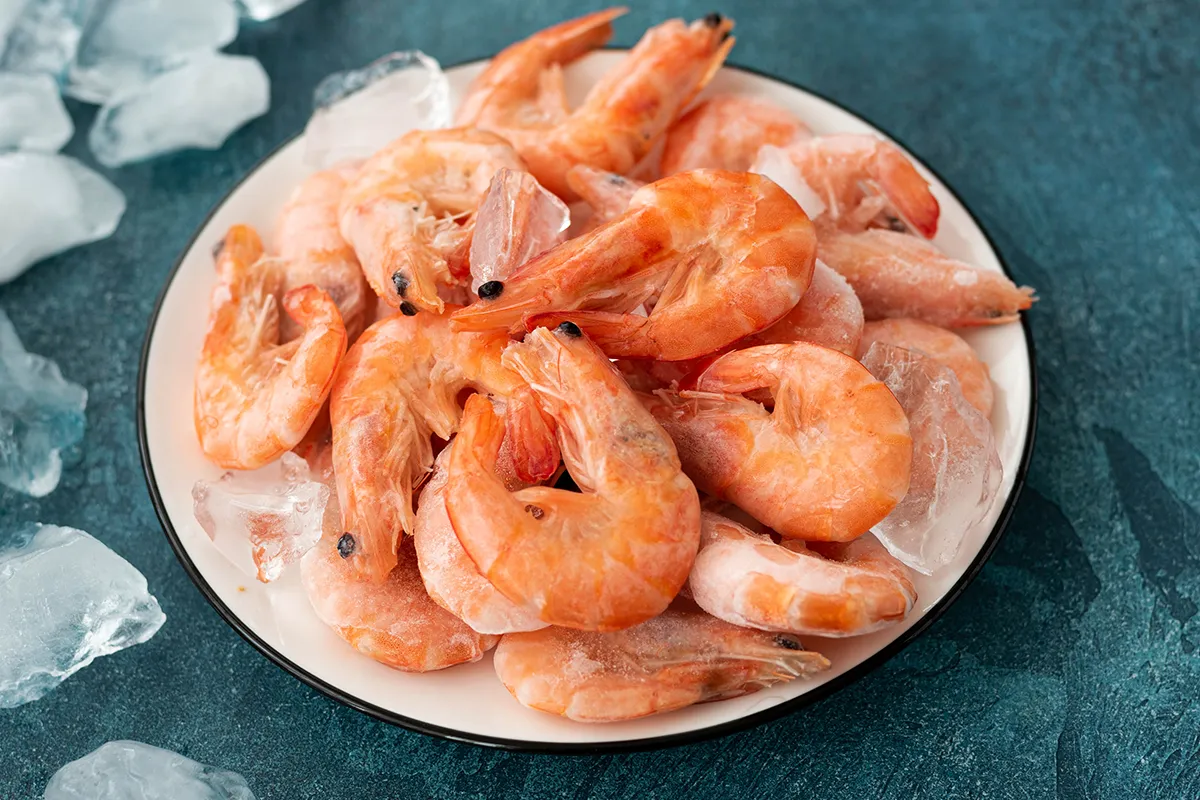
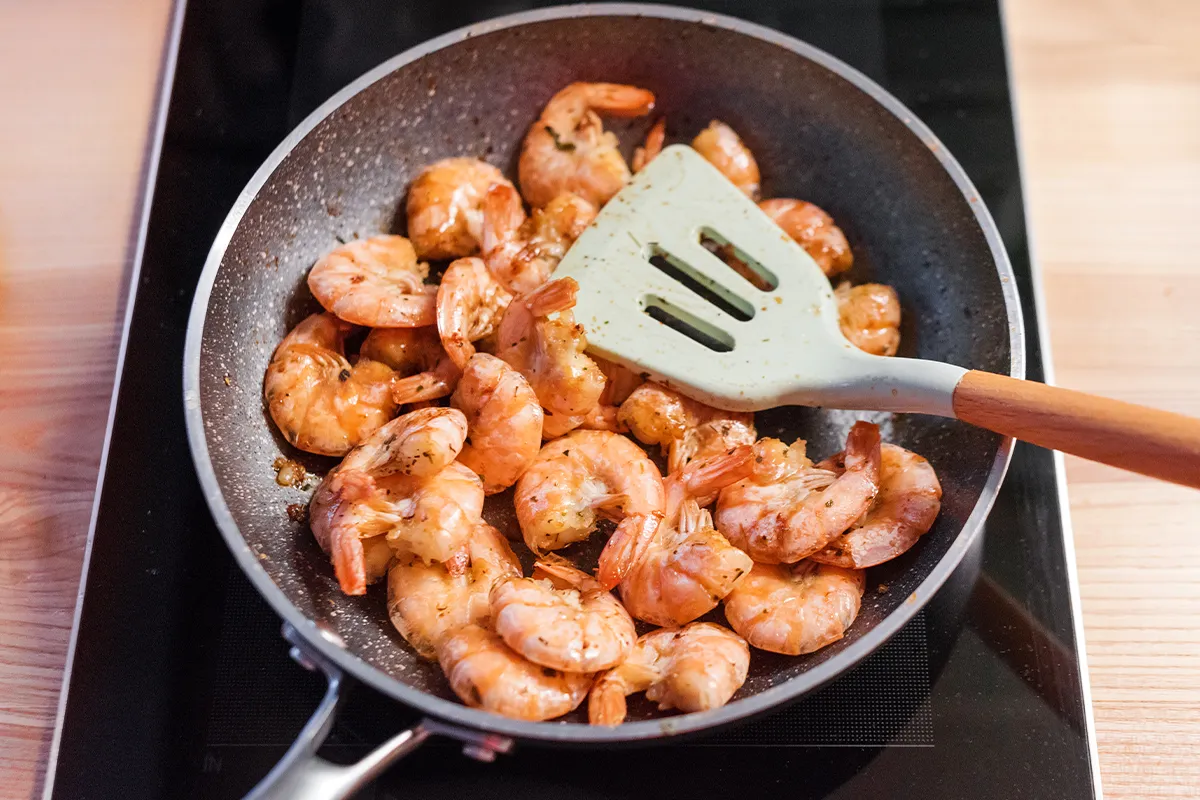
8. Forgetting to Preheat the Pan
Cooking shrimp requires speed, and starting with a cold pan can cause the shrimp to cook unevenly. If the pan isn’t hot enough, the shrimp may stick to the surface and fail to develop a proper sear. This can result in an unappealing, rubbery texture.
Always preheat your pan before adding shrimp. For sautéing, heat oil or butter over medium-high heat until it’s shimmering or bubbling. A hot pan ensures the shrimp cook quickly and evenly, locking in their natural juices. Preheating is a simple step, but it’s one that separates beginner cooks from pros when it comes to how to cook shrimp perfectly.
9. Ignoring Shrimp Size
Shrimp come in many sizes and it is a common mistake is treating all shrimp the same, regardless of size. Larger shrimp, like jumbo or colossal varieties, take longer to cook, while smaller shrimp can be ready in under a minute. If you’re not adjusting your cooking time based on size, you risk overcooking small shrimp or undercooking large ones.
When buying shrimp, pay attention to the size count per pound. This number gives you an idea of how many shrimp you’re working with and helps you estimate cooking time. For example, shrimp labeled “16/20” means there are 16 to 20 shrimp per pound, and these will take slightly longer to cook than smaller varieties. Understanding shrimp sizes will help you master how to cook raw shrimp efficiently and accurately.
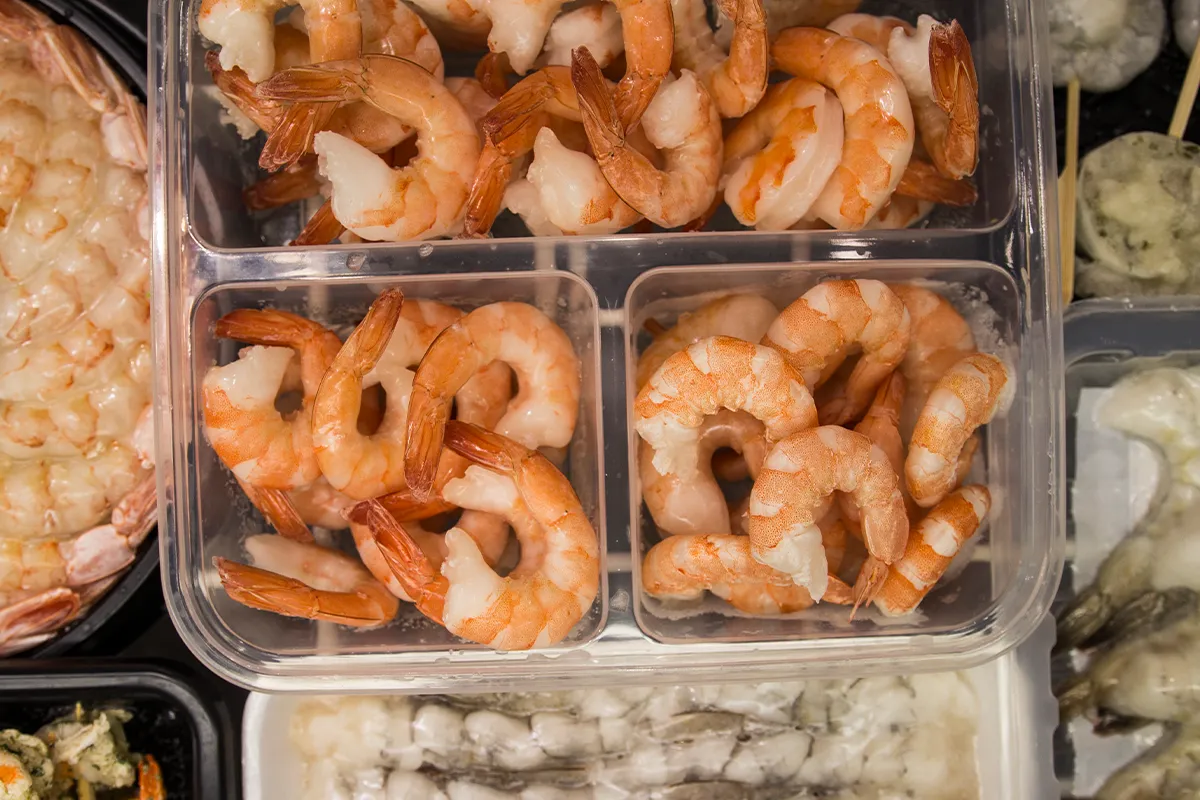
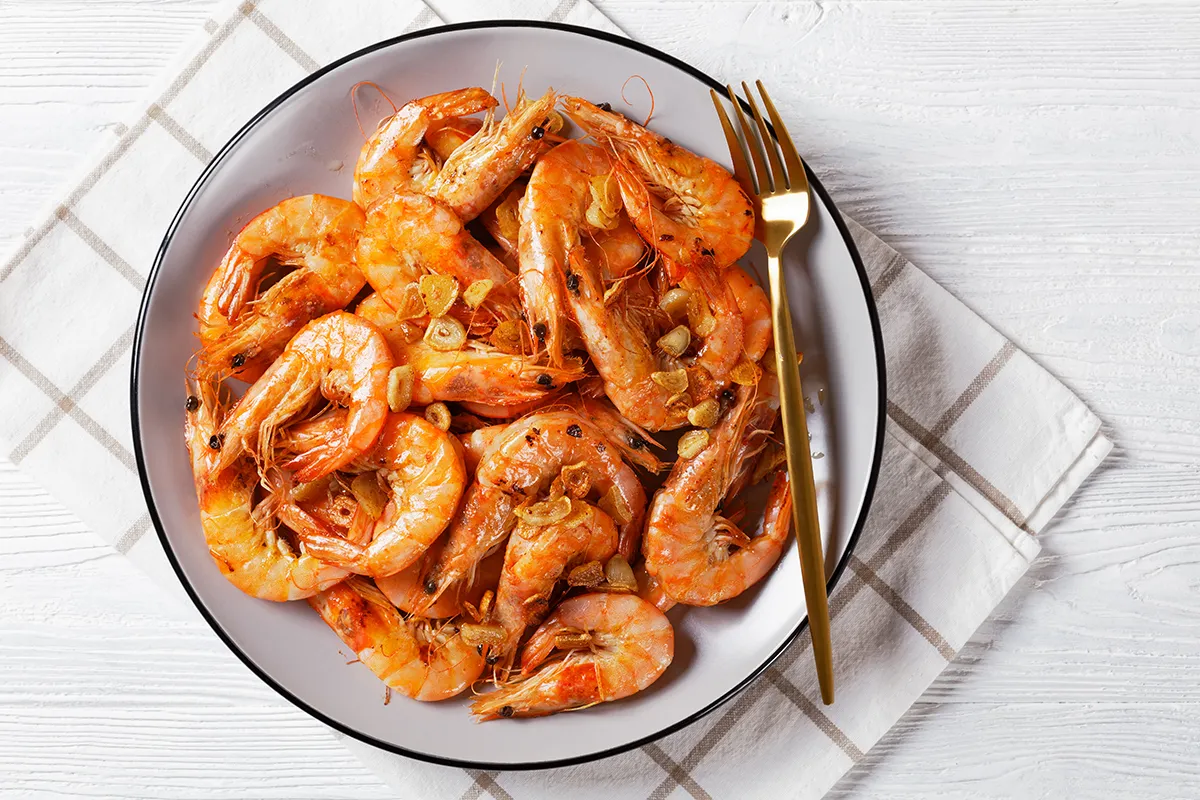
10. Using Low-Quality Shrimp
The quality of shrimp you buy can make or break your dish. Shrimp that are old, poorly stored, or previously frozen and refrozen will have a mushy texture and lack flavor. Fresh, high-quality shrimp, on the other hand, have a firm texture and naturally sweet taste.
When shopping for shrimp, look for ones that are firm to the touch and have a mild, briny smell. If buying frozen shrimp, check that they’re individually quick frozen (IQF) to ensure freshness. If you’re searching for “seafood near me,” check local markets or specialty seafood stores. These places often have fresher options than big supermarkets. You can also ask the seller about the shrimp‘s origin to make sure it’s sustainably sourced.
frequently asked questions
Why is it important to devein shrimp?
Deveining improves the flavor and texture of shrimp. It removes the gritty digestive tract, ensuring a clean and enjoyable bite.
How can I tell if I overcooked shrimp?
What’s the best way to thaw shrimp?
Conclusion
Cooking shrimp might seem intimidating at first, but it’s easy once you know what mistakes to avoid. From deveining and thawing to seasoning and cooking, each step matters when preparing shrimp. With a little practice and attention to detail, you’ll soon be making restaurant-quality shrimp dishes at home.
So, the next time you’re browsing a seafood menu or thinking about dinner ideas, remember these tips on how to make shrimp. Your taste buds and anyone you’re cooking for will fall in love with shrimp!


